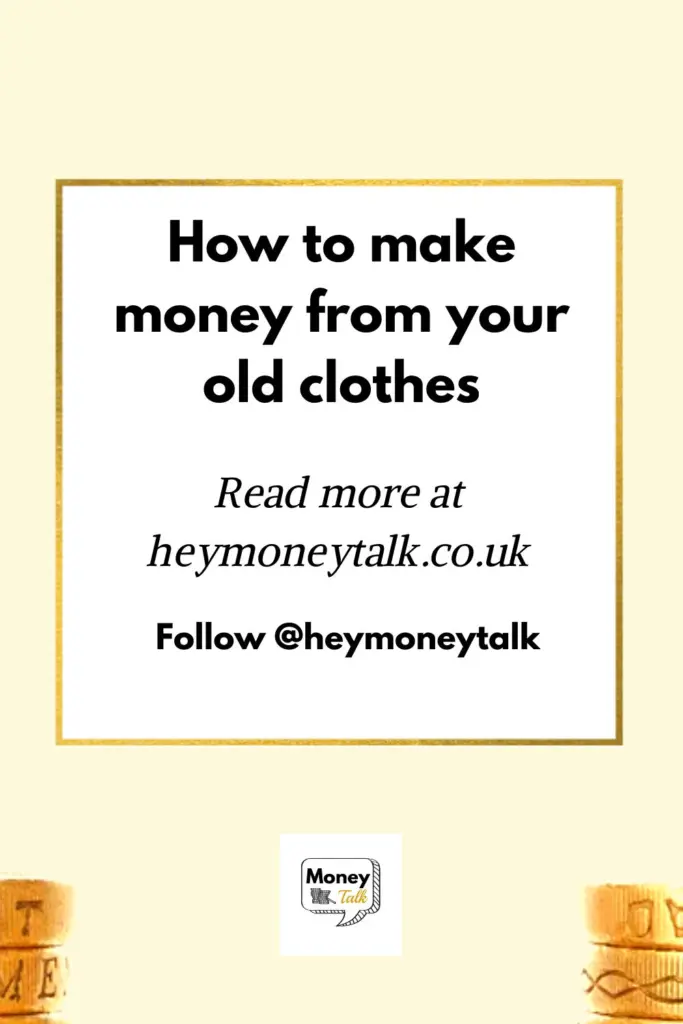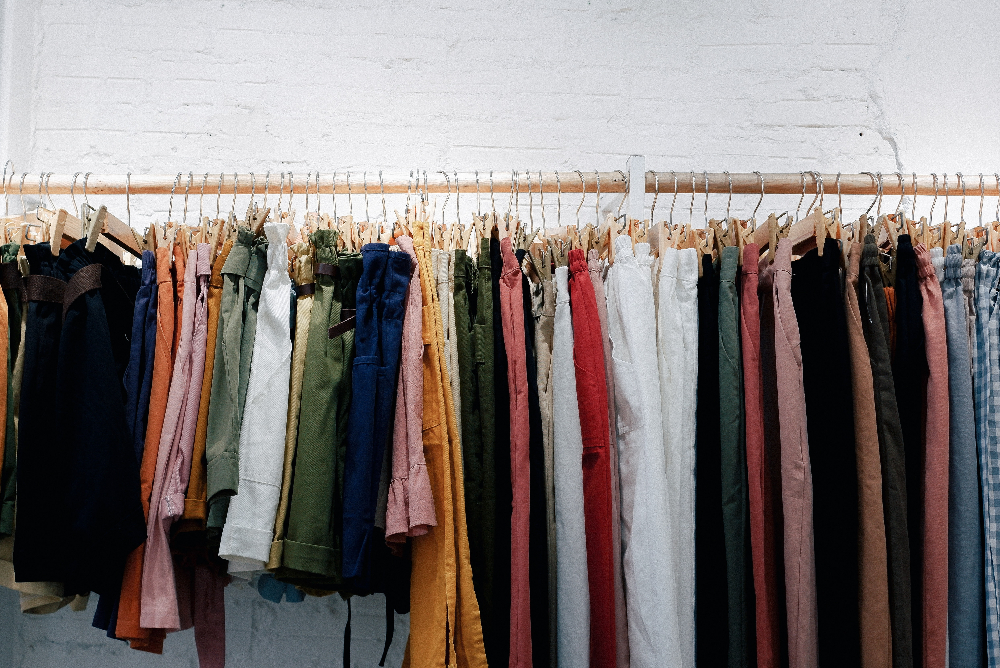How to make money from your old clothes
Money Talk is intended to inform and educate; it's not financial advice. Affiliate links, including from Amazon, are used to help fund the site. If you make a purchase via a link marked with an *, Money Talk might receive a commission at no cost to you. Find out more here.
I’m going to confess something: I’ve been doing a lot of clothes shopping in the last few years.
It’s not a big deal except it’s hampering my efforts at doing no-spend challenges.
My excuse is that I’ve needed them due to a combination of shifting seasons, big sales and lifestyle changes.
More specifically, I mostly work from home these days, but need a slightly different set of clothes for when I’m travelling for work – four summers ago I would have been commuting to the office everyday.
The result is that my wardrobe has swelled, and a clear out has been long overdue.
You can take it all to the charity shop, of course – and I do for some items – but there’s a lot of monetary value too.
So if you want to make some money from your old clothes too, here are some ways to do it.
Sell your clothes
The most obvious way to make money from your old clothes is to sell them.
Don’t expect to get anywhere near what you originally paid though, unless it’s designer stuff.
As for where to sell your stuff, there are plenty of options.
EBay
Many people still turn to eBay first.
I’ve avoided it in the past because of the high selling fees – second hand clothes don’t make a lot of money anyway, and once you’ve factored in the fees it just wasn’t worth the effort.
Estimating postage was also quite tricky.
Since eBay scrapped fees for casual sellers, it might be worth considering again.
But I recommend doing it via the app – it’s a much quicker and easier process that way.
Vestiaire Collective
Vestiaire Collective* is the go-to website for offloading designer stuff.
It’s free to list, and you can leave your item up there for as long as you want – but you do have to log in regularly to say you still want to sell your item or they’ll delist it.
They won’t accept everything though, and they have very specific requirements for photos, but it’s a much better option for higher value items.
The fees can be an issue.
Vestiaire Collective used to charge a 15% commission plus a 3% payment fee, which doesn’t leave you with a lot of profit.
Since May 2024 though, it’s reduced this to zero for around 4,000 brands. For everything else it’s 10%.
I’ve sold a few items on there, generally recouping about 50% of what I originally paid.
What I really like though is that it’s open to buyers globally – which gives you a bigger market – and they pay the shipping.
The last couple of things I’ve sold have all been to the US.
Apps for selling clothes
Apps for selling clothes have become hugely popular because they’re so easy to use, and they’re especially good for mass market brands.
Vinted* is a great example.
There are no selling fees on the platform; the buyer pays for this plus shipping fees.
I’ve listed a bunch of stuff, and I’m constantly surprised by what gets sold.
The downside for sellers is that average prices are very low so you’re unlikely to shift higher value items.
And buyers will often haggle for an even lower price.
Depop and Shpock are other ones to consider.
Remember, there’s nothing to stop you from listing the same items everywhere, save for the lack of time.
Second hand shops
Don’t forget to try your local second hand shop, especially for vintage and high quality stuff.
Some will sell your stuff on a concession basis (they’ll stock it and take a commission when it sells) while others will simply buy it off you.
Swap your clothes for vouchers
A few high street shops have clothes swap schemes where you get a voucher when you take in your unwanted items.
M&S
One of the earliest to do this is M&S, which launched its Shwopping scheme* in 2008 in partnership with Oxfam.
There are a few sub-schemes within this. You can get
- £5 towards a £35 shop if one of the items you donate to Oxfam is from M&S
- a treat in-store via the Sparks app when you drop off your items in the designated recycling bins
- 20% off kids’ daywear when you donate kids’ school uniforms.
H&M
H&M launched its Garment Collecting programme in 2013.
You get a £5 voucher towards any purchase of £25 or more when you take in a bag of unwanted clothes in any condition and from any brand.
John Lewis
There’s also John Lewis’ FashionCycle scheme*.
You’ll get £5 towards a £20 shop when you bring in five items or more to be recycled.
Rent out your clothes
Got some nice clothes and not short of wardrobe space? Why not rent them out instead?
There are now a few platforms that make this possible, including Hurr* and By Rotation.
I haven’t tried these yet, but it’s worth reading the terms and conditions before you sign up.
In particular, look out for fees, postage and of course what happens with laundry and if the item is damaged or lost in transit.
Don’t forget your taxes
If you’re extraordinarily good at making money out of your old clothes, don’t forget to do your taxes.
Any income you make over £1,000 (before expenses) becomes taxable if you get paid on a PAYE basis.
If you’re self employed however, this automatically becomes part of your income.
This is more applicable if you rent out your clothes, but can also apply if selling turns into a regular trade.
Read this: Things you should be claiming in your tax return
This post was originally published in August 2023. It was updated in March 2025.
Pin this for later








